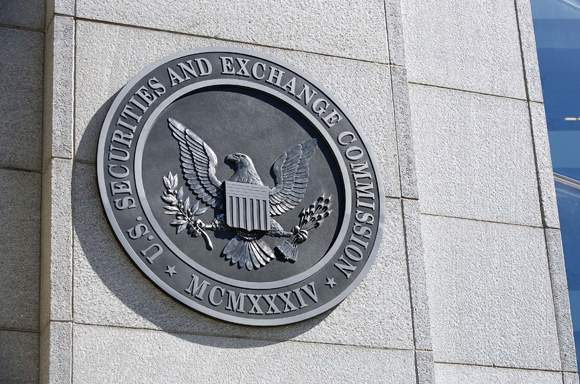The SEC's effort to restrict pay incentives used by investment advisers and broker-dealers won't extend to the practice of handing out hefty bonuses to lure brokers from one firm to another.
The Securities and Exchange Commission's proposed rule change likely will be limited to pay practices intended to boost performance and won't veer off into incentives intended to influence hiring, according to an SEC official who spoke on the condition of anonymity.
“The rules are meant to get at incentives that could create inappropriate risks, and since the upfront bonus — assuming it's unconditional and can't be clawed back based on performance measures — doesn't create risks for future conduct, it wouldn't be covered,” the SEC official wrote in an e-mail.
Upfront bonuses are an example of how the investment advice industry has succeeded in aligning the interests of advisers, clients and firms, said Mark Elzweig, president of an eponymous executive recruiting firm. The bonuses are linked to long-term contracts and depend on brokers' following industry best practices.
Adviser pay is based on a portion of the fees and commissions they generate, rather than on salary-plus-bonus arrangements, Mr. Elzweig said.
“If the [SEC] understands how the compensation for advisers works, they're not going to find any problems,” he said.
Last week, the SEC voted 3-2 to issue a proposed rule that would force large investment advisers and broker-dealers to end pay programs that the commission thinks foster excessive risk taking.
It would require advisory firms and broker-dealers with more than $1 billion in assets to disclose to the SEC their incentive-based compensation schemes. Regulators could prohibit a plan if they find it “encourages inappropriate risks” or could lead to substantial financial losses by offering “excessive compensation,” according to an SEC fact sheet.
The SEC split is a sign that it likely will tread carefully in developing a final regulation.
“There is little discussion in the release about whether rules … based on Financial Stability Board guidelines for large banks are relevant or appropriate for firms such as large investment advisers,” Commissioner Kathleen Casey said last Wednesday at an open meeting.
Deferring pay
The rule would place certain restrictions on financial institutions with more than $50 billion in assets. They would have to defer for at least three years 50% of incentive-based pay for executives.
They also would have to distribute it on a prorated basis and claw back bonuses if the company lost money. In addition, their boards would have to approve incentive arrangements for non-executive employees, such as high-profile traders, who could expose the firms to substantial losses.
Ms. Casey and Troy Paredes, the SEC's two Republicans, voted against the proposed rule, saying that it was misguided in taking compensation decisions out of the hands of corporate boards and giving them to the government.
“The commission is not well-equipped to prescribe rules that dictate the specifics of how individuals must be paid,” said Mr. Paredes, who argued that compensation strictures would hinder recruiting and retention at advisory firms and broker-dealers.
Writing a rule will be complicated in part because seven financial regulators — the SEC, the Federal Deposit Insurance Corp. and the Federal Reserve, among others — must collaborate under a mandate of the Dodd-Frank financial reform law designed to curb pay incentives that promote reckless financial decisions that could harm investors and potentially destabilize markets.
The new rule will be published in the Federal Register and open to a 45-day comment period after all seven financial regulators give their approval.
SEC Chairman Mary Schapiro indicated that the commission will carefully consider its impact on private-fund advisers as well as on broker-dealer and investment adviser business models.
“This is an area where we want to be very attuned to unintended consequences,” she said.
The disagreement among commissioners and Ms. Schapiro's statement illustrate that the rule is far from settled, according to Andrew Oringer, a partner at the law firm Ropes & Gray LLP.
“The language used to solicit comments is more extensive than you ordinarily see, because I think they realize that there could be genuine issues with what they're proposing,” he said. “We don't know what the impact of any specific set of new requirements would be on these important institutions, and I'm not sure that we want to roll the dice on that question.”
Nevertheless, investment advisers soon could be part of the trend toward compensation controls that began in the banking sector and has now expanded into other areas of the industry, such as asset management.
The idea is not to banish the inevitable moments when money is lost investing, said Scott Olsen, a principal at the accounting giant PricewaterhouseCoopers LLP.
It is “to align risk and compensation outcomes rather than eliminate risk. The question is: How do you do that in a way that is fair across organizations?” Mr. Olsen said.
Federal financial regulators will be pondering that issue for the next few months.







